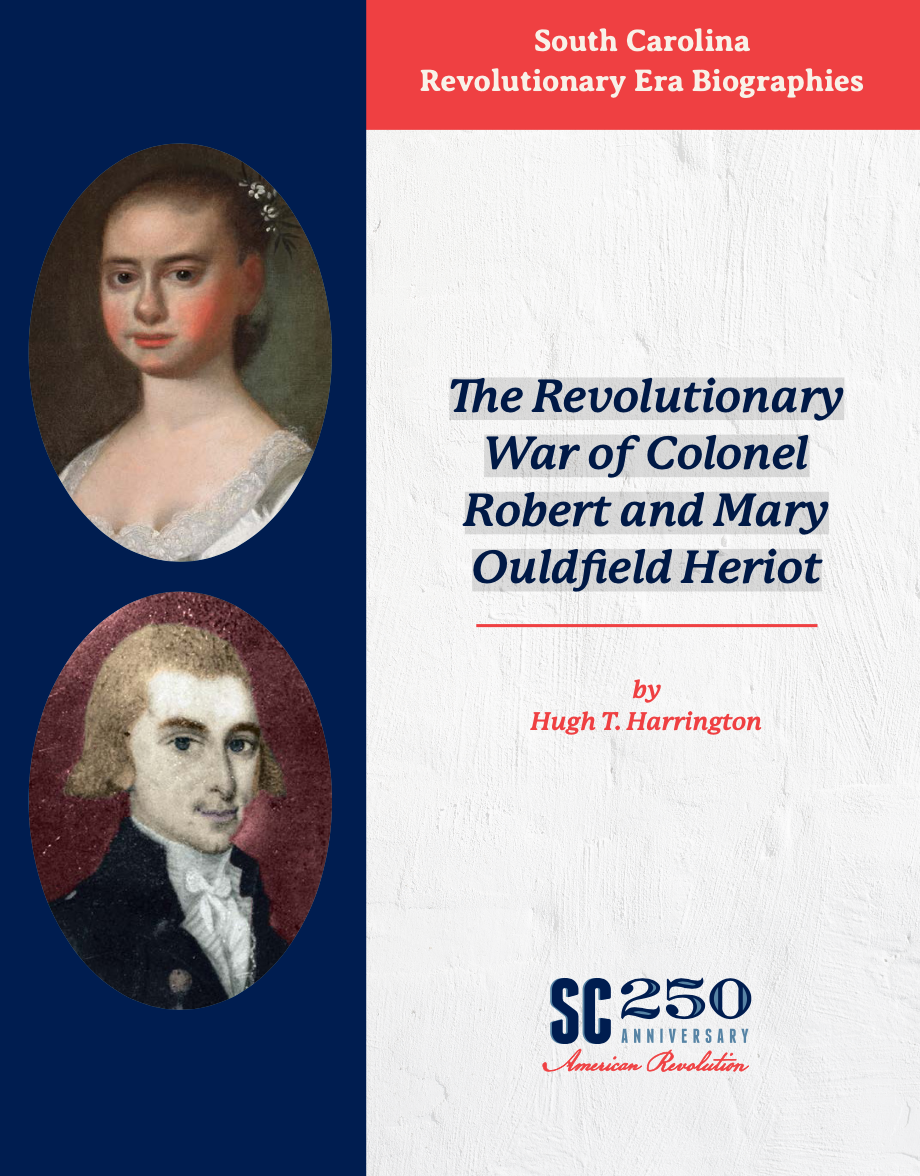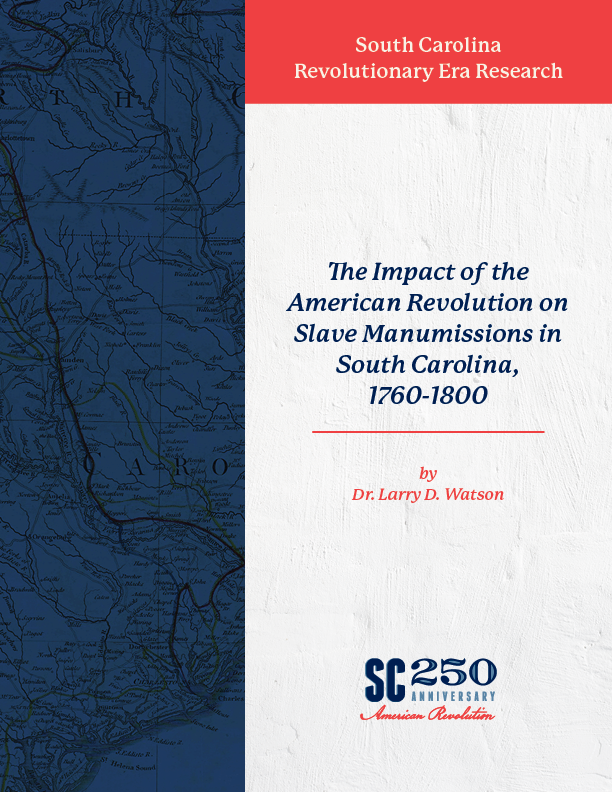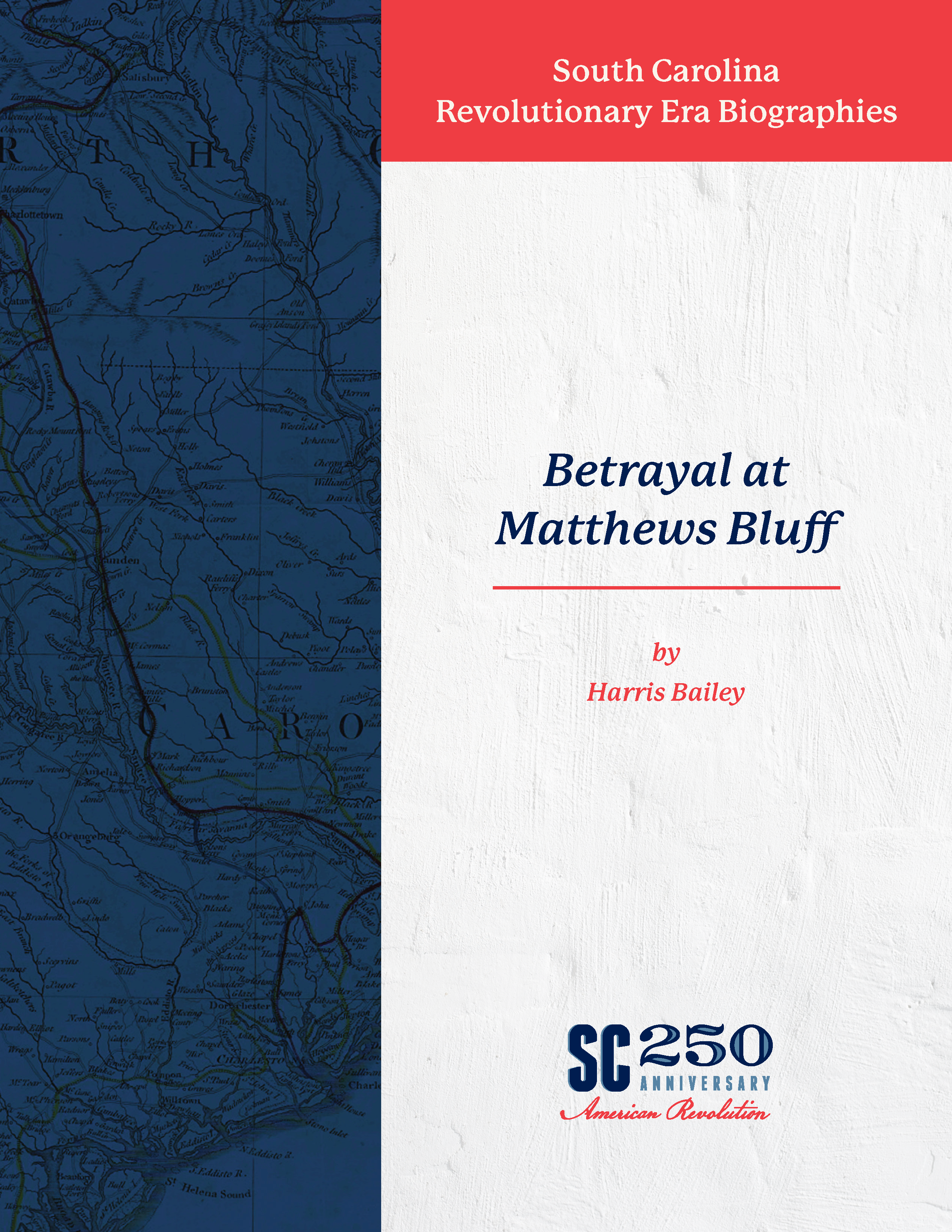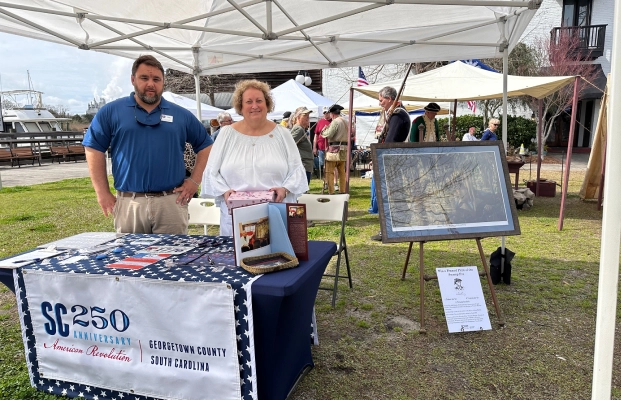
Tony Small
Read Full Publication
The Revolutionary War of Colonel Robert and Mary Ouldfield Heriot
At first glance, it would appear that an account of the lives of Robert and Mary (“Polly”) Heriot of South Carolina adds little to the story of the American Revolution. Robert Heriot held no major political offices, gave no fiery speeches extolling liberty as did Patrick Henry, and wrote no stirring appeals to patriotism such as those composed by Samuel Adams.

The Francis Marion Papers – Volume II
Editor in Chief: David Neilan
Editors: G. Richard “Rick” Wise and Benjamin H. “Ben” Rubin

The Francis Marion Papers – Volume I
Editor in Chief: David Neilan
Editors: G. Richard “Rick” Wise and Benjamin H. “Ben” Rubin

The Impact of the American Revolution on Slave Manumissions in South Carolina, 1760-1800
Read Full Publication
Betrayal at Matthews Bluff — The Search for Willie
This publication explores the identity of Willie, who led Lieutenant Kemp’s platoon of Loyalist troops into an ambush by Patriot forces at Matthew Bluff in present-day Allendale County, South Carolina, on January 22, 1781.

Explore The Palmetto State
Get Revolutionary. Discover an era rich with significant people, major landmarks, exciting events and unforgettable stories you’ve yet to hear.